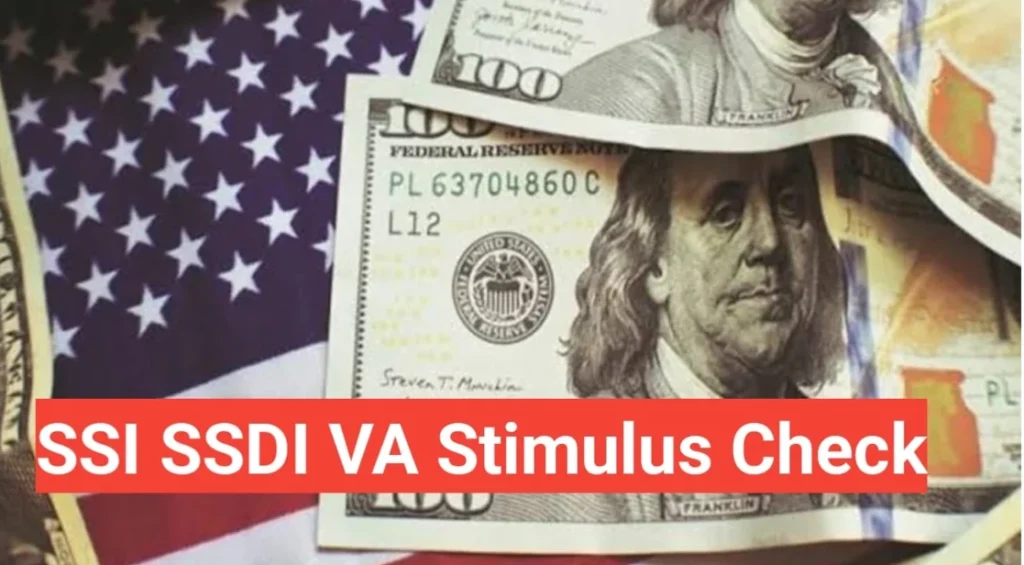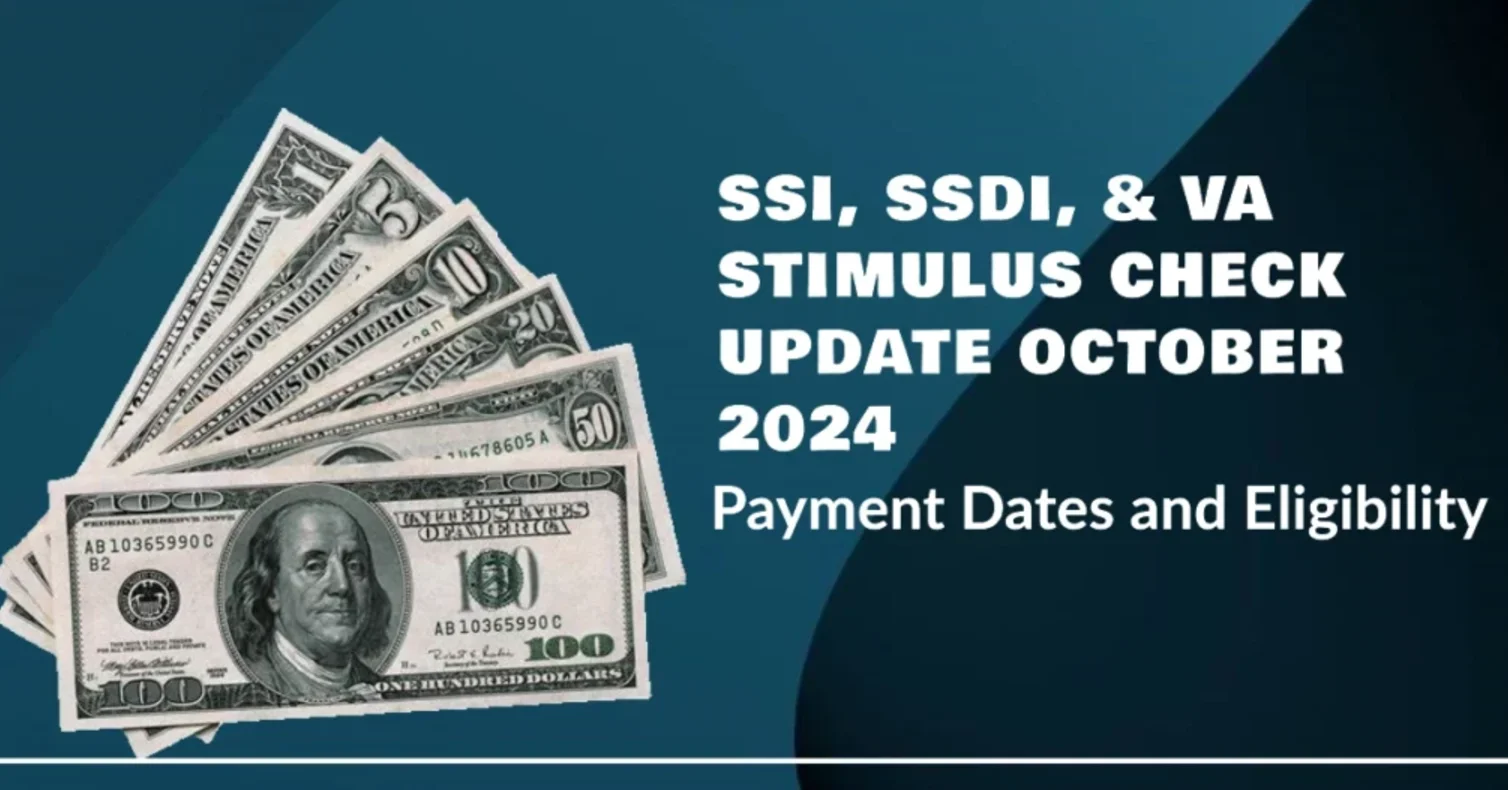SSI SSDI VA Stimulus Check: Your Essential Relief and Financial Boost
SSI SSDI VA Stimulus Check – sounds like a lifeline for many, right? You’ve undoubtedly heard rumors about a special stimulus check if you receive Veterans Affairs (VA), Social Security Disability Insurance (SSDI), or Supplemental Security Income (SSI). However, what is it? Is it authentic? And how does it operate? To discover out, you’re in the correct place! Let’s break it down and answer all of your questions because this cash boost is intended to provide some additional support when you need it most. Knowing this stimulus could help you plan ahead, whether you’re trying to stretch your money or manage your everyday costs. Let’s get started and explore how you might benefit from this check!
SSI SSDI VA Stimulus Check: What You Need to Know
Many people have found it difficult to make ends meet in recent years due to economic issues, particularly those who are on fixed incomes or have impairments. One way the government has intervened to offer financial assistance is through the SSI SSDI VA Stimulus Check. However, who is eligible for these checks, and what does it mean for people who depend on VA, Social Security Disability Insurance, and Supplemental Security Income? Let’s dissect it so you can see exactly how this stimulus might affect your financial status
1. What Is the SSI SSDI VA Stimulus Check?
A direct payment from the government to people who receive SSI, SSDI, or VA payments is known as the SSI SSDI VA Stimulus Check. These cheques are intended to offer additional financial assistance, especially in lean economic times. As part of larger initiatives to stabilize the economy, stimulus cheques can be sent in response to a variety of local or national financial demands, such as the COVID-19 epidemic.
This stimulus’s tailored approach is its most important feature. It is intended for people who have proven to be in need, such as those receiving federal disability aid or veteran benefits, rather than giving cheques to everyone. The SSI SSDI VA Stimulus Check is an effort by the government to alleviate some of the particular financial hardships that these groups experience.
The fact that these stimulus funds are temporary should not be overlooked. They are frequently given out as one-time payments or on a recurring basis during national emergencies. The government’s financial plans and the state of the economy can affect the SSI SSDI VA Stimulus Check’s quantity and frequency.
2. Who Is Eligible for the SSI SSDI VA Stimulus Check?
Eligibility for the SSI SSDI VA Stimulus Check is typically based on your current benefit status. If you’re receiving SSI, SSDI, or VA benefits, you may qualify for the check, but eligibility can depend on various factors such as income level, household size, and disability status.
Here’s a breakdown of each program’s eligibility:
| Program | Eligibility Criteria | Notes |
| SSI | Must be receiving Supplemental Security Income | Income and asset limits apply |
| SSDI | Must be receiving Social Security Disability Insurance | Based on work history and disability |
| VA Benefits | Must be a veteran receiving disability benefits | Additional benefits for dependents may apply |
There is no assurance that you will automatically receive the stimulus check, even if you now receive one of these benefits. For instance, some people would have to update their information with the appropriate organization or reach specific salary levels.
3. How Much Can You Expect to Receive?
Government policies and the type of stimulus package determine how much the SSI SSDI VA Stimulus Check is worth. Individuals received between $600 and $1,400 each in prior rounds. However, the particulars of each distribution cycle determine the ultimate amount.
The sum is usually intended to represent the financial necessity of the person or household. Even while the checks for people receiving SSI, SSDI, or VA benefits might not be as big as those for the general population, they are still a vital source of income.

Depending on how you receive your other benefits, you can usually anticipate either a mailed check or a direct deposit if you are eligible for the SSI SSDI VA Stimulus Check. To get the precise numbers for your case, be careful to monitor official pronouncements.
4. How to Apply for the SSI SSDI VA Stimulus Check
You often don’t have to submit a separate application for the SSI SSDI VA Stimulus. Verify whether you currently get VA, SSDI, or SSI benefits. Those who are eligible typically receive these checks automatically. To guarantee that you receive the payment right away, you might occasionally need to update your details.
For instance, you must update your records with the Social Security Administration (SSA) or the Veterans Affairs office if your address or bank information changes. Usually, you can phone the appropriate agency or make these modifications online.
Contact SSA or VA customer care if you haven’t received a payment or believe there may be a problem with your eligibility. Remember that it’s wise to periodically check your benefit status to make sure you’re getting all the assistance you need.
5. What to Do with the Stimulus Check?
It’s crucial to prepare how you will utilize your SSI SSDI VA Stimulus Check after you receive it. These checks are crucial for many people to pay for necessities like groceries, rent, and utilities. If you have some leeway with the money, though, it can be a chance to invest in long-term necessities, pay off debt, or save for unforeseen costs.
Think about reserving a portion of the check for unexpected expenses. Although it can be simple to spend it all at once, having a little emergency reserve can provide you piece of mind. As an alternative, the SSI SSDI VA Stimulus Check may be the best choice if you’re experiencing financial difficulties right now, such past-due obligations.
The temptation to spend the money on frivolous things is strong, but it’s always a good idea to think about how your decisions will affect things down the road. Setting important costs first will help you stay financially stable, particularly if stimulus payments are delayed.

